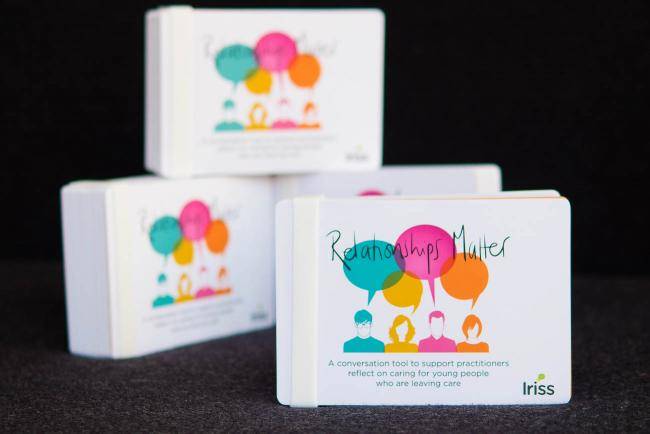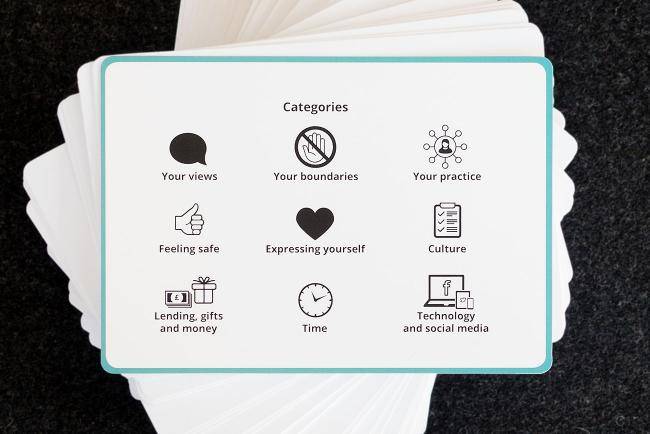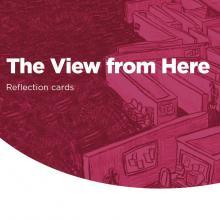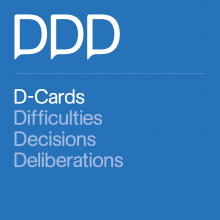What can this tool be used for?
To support practitioners, individually and in groups, reflect on their views and values when continuing to care for young people who are leaving care (Children and Young People (Scotland) Act, 2014).
How do you use it?
This tool can be used flexibly and can be used in a variety of ways, for example, by individuals, in one-to-one or group supervision, or in learning and development sessions.
There are no right or wrong ways to use the cards, however, there are three simple steps you can follow:
- Choose a question (or group of questions)
- Use the questions to prompt thinking and / or group discussion
- Decide how you / your organisation will action the learning from your reflections and conversations
To support your reflections, you may want to consider your own, your team’s and your organisation’s:
- Choice of question(s)
- Approach to relational-based practice
- Learning
Depending on how you want to action your reflections you may want to have a pen and paper, or an audio recorder to hand.
If you have learned something new the cards encourage you to act on it by asking:
- What needs to happen to enable this learning to become part of your practice?
- What needs to happen so you can be better supported to practise this way?
Outcomes of using this tool
Sixty seven people tested the conversation tool. These included residential workers, service managers, social work lectures, students and fostering assessors. Corporate parents from education services in Ayrshire, Borders, Edinburgh, Fife, Glasgow, Highlands, Midlothian, Moray, North Lanarkshire, South Lanarkshire, Stirling and West Lothian also tested the tool.
We asked people to fill out an online or paper-based survey to understand the impact of the reflections and conversations the tool promoted. Using this data we created three case studies (CS1, CS2 and CS3 which can be dowloaded above) to share what people learned and what they plan to do differently at work. These case studies were chosen as they highlight three different ways to use the tool.
Overview
Feedback indicated that the tool prompts conversations about practical aspects of continuing care that corporate parents are not always explicitly aware of. People found that managers and facilitators’ interest in their responses to the questions implied that they had dedicated time to reflect on their initial responses to the questions. This in turn, raised awareness of their views and the views and practices of others. Everyone was able to explain what they, and their organisation, were going to do differently to better enable relational-based practice





